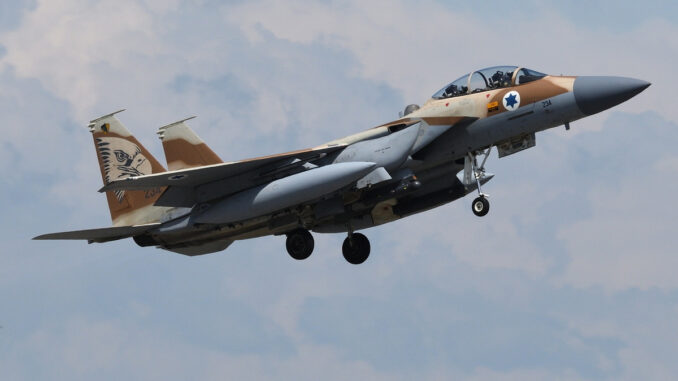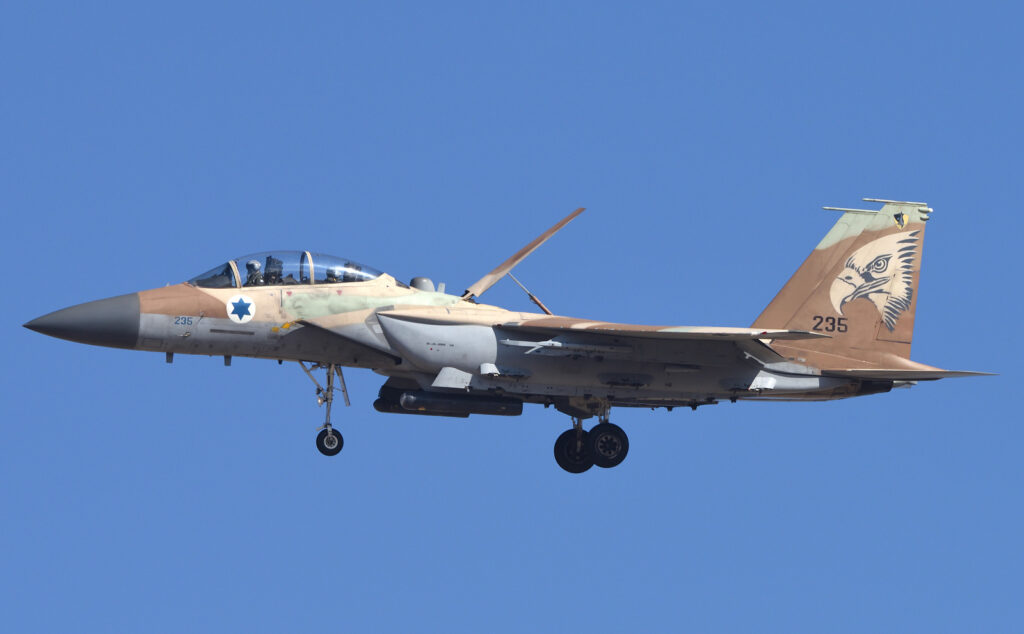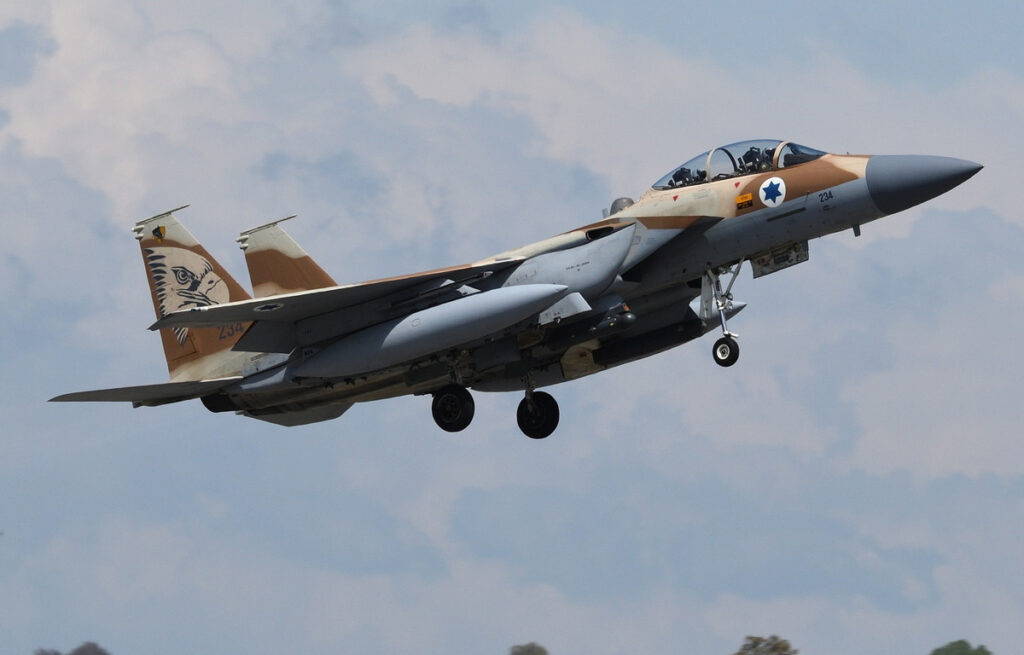
Israel is buying 50 new F-15IAs for $18.82 billion and upgrading 25 existing F-15Is to boost its air capabilities.
Israel has signed an $18.82 billion deal to acquire 50 new F-15IA fighter jets and modernise 25 of its existing F-15Is. This strategic contract aims to replace the old F-15 Baz and bring the F-15I up to modern standards. This acquisition will enhance the capabilities of the Israeli air force, integrating advanced systems such as active electronically scanned array radars and high-performance engines. This reinforcement comes in a tense geopolitical context, with growing threats in the region.

18.82 billion investment for Israeli defence
Israel recently obtained approval for the purchase of 50 new F-15IA fighters and the modernisation of 25 existing F-15I fighters. The total cost of the deal is estimated at $18.82 billion (around €17.3 billion). This covers not only the new aircraft, but also a full range of sophisticated equipment and weapons systems, including 120 F110-GE-129 engines, 90 advanced processors, and 75 APG-82(V)1 radars.
This investment represents a significant part of Israel’s defence budget, which is expected to reach around €24.3 billion by 2023. By comparison, this acquisition is equivalent to around 71% of the country’s annual defence budget, underlining the strategic importance of this programme for Israel. The integration of the F-15IAs, based on the advanced configuration of the F-15EXs, aims to strengthen Israel’s air capabilities, which are crucial in a regional context marked by growing tensions.
F-15I modernisation and F-15 Baz replacement
The Israeli F-15 fleet currently comprises the F-15A/B/C/D Baz models, which have been in service for almost 50 years, and the F-15I Ra’am, introduced 25 years ago. The ageing of these aircraft, although still functional thanks to regular updates, poses challenges in terms of maintenance and effectiveness in the face of modern threats.
The acquisition of 50 new F-15IAs and the modernisation of 25 F-15Is will revitalise this fleet. The F-15IAs will incorporate advanced technologies such as APG-82(V)1 electronically scanned array radars, which offer improved target detection and tracking, and F110-GE-129 engines, known for their reliability and enhanced performance. Upgrading the F-15I to the F-15I+ will bring them up to F-15IA standards, ensuring consistency across the fleet and facilitating long-term maintenance.
Replacing the F-15 Baz with these new models is essential, not only to maintain Israel’s air superiority, but also to guarantee maximum operational capability against potential adversaries equipped with cutting-edge technology.
Geopolitical and military implications
This agreement comes against a backdrop of growing tensions in the Middle East, particularly with Iran and militant groups in the region. The modernisation and acquisition of the F-15s will strengthen Israel’s ability to carry out long-range strikes, provide air defence and fulfil multi-purpose attack roles. In addition, these aircraft are capable of carrying heavy weaponry, including airborne ballistic missiles, significantly increasing the range and impact of Israeli military operations.
The integration of the F-15IA and F-15I+ into the Israeli Air Force also improves interoperability with US systems, strengthening the strategic ties between the two countries. This cooperation is crucial for Israel, which has benefited from US military and technological support for several decades.
Economic consequences for the defence industry
For Boeing, the main manufacturer of the F-15, this agreement represents a major opportunity. In addition to boosting production of the F-15EX for the US Air Force, the Israeli order will enable production rates to be maintained and increased, thereby guaranteeing the sustainability of the production line. In addition, the modernisation of existing F-15Is will require upgrade kits and support services, generating additional revenues for the US defence industry.
This deal could also influence other countries to opt for F-15EXs or derivative models, such as Poland and Indonesia, which have shown an interest in these aircraft. The success of this programme could therefore have a positive impact on future sales and Boeing’s positioning in the global fighter market.

Future prospects
The acquisition of the F-15IA and the modernization of the F-15I are part of a long-term strategy to maintain Israel’s air superiority. With deliveries scheduled from 2029, this programme will ensure the operational capability of the Israeli air force for decades to come. Current tensions in the region make this modernisation all the more relevant, enabling Israel to prepare for future threats while strengthening its defence capabilities.
This $18.82 billion agreement between Israel and the United States represents a major step forward for the Israeli air force. By modernising its F-15 fleet and integrating cutting-edge technologies, Israel is securing its national defence and strengthening its strategic position in the Middle East. This initiative will also have significant economic repercussions for the defence industry in both Israel and the United States.
War Wings Daily is an independant magazine.